2024 - 2025 Organs and Origins Conference Series
Inaugural Conference: What is an Organ?
April 5 - 6, 2024
105 Jordan Hall of Science/Andrews Auditorium, Geddes Hall
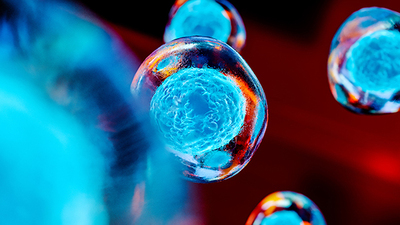
The 21st century has witnessed amazing advances in the life sciences, especially in genomics, neuroscience, biochemistry and associated technologies. This rapid progress has led some scientists to have confidence in the human ability to engineer life, while inspiring others to see profound limits in the mechanistic modeling of living systems. How might interdisciplinary dialogue between biology, engineering, philosophy and theology frame and strengthen the latest insights into the nature of life?
In this inaugural conference of Organs and Origins, co-sponsored by the College of Science and the McGrath Institute for Church Life, thought leaders will guide faculty and students across the disciplines to consider organs and organisms in new ways. Through generous funding from the John Templeton Foundation, 29 stipended fellowships are available for faculty and graduate students from across the disciplines who seek to enrich their teaching and research through this learning experience.
Registration Form - Click Here
Graduate Student Fellowship Application - Click Here
Faculty / Postdoc Fellowship Application - Click Here
**Fellowship Application Deadline Extension**
Schedule of Events
| Friday, April 5 | ||
| 4 - 4:30 p.m. | Welcome and Opening Remarks, Christopher Baglow | Jordan Hall of Science, Room 105 |
| 4:30 - 5:45 p.m. | "From Organs to Organisms: Deconstructing and Reconstructing a Physiological View of Organs" Santiago Schnell | Jordan Hall of Science, Room 105 |
| 6:00 - 8:00 p.m. | Opening Dinner for Speakers and Fellows | Morris Inn, Private Dining Room |
| Saturday, April 6 | ||
| 9 - 10:15 a.m. | "Science as 'Practical Thought' and the Concept of an 'Organ'" Nicholas Teh | Geddes Hall, Andrews Auditorium |
| 10:15 - 10:45 a.m. | Break | |
| 10:45 a.m. - 12 p.m. | "Are Engineered Systems Organs and Organisms?" David Go | Geddes Hall, Andrews Auditorium |
| 12 - 2 p.m. | Lunch Break | |
| 2 - 3:15 p.m. | "What is the Brain?" Sofia Carozza | Geddes Hall, Andrews Auditorium |
| 3:15 - 3:45 p.m. | Break | |
| 4 - 5:15 p.m. | "Science, the Humanities, and the Catholic Intellectual Tradition" John Cavadini | Geddes Hall, Andrews Auditorium |
| 5:15 - 5:30 p.m. | Closing Remarks, Heather Foucault-Camm | Geddes Hall, Andrews Auditorium |
| 6 - 8 p.m. | Closing Dinner for Speakers and Fellows | Eck Visitors Center Atrium |
Talk Desciptions
-
"From Organs to Organisms: Deconstructing and Reconstructing a Physiological View of Organs"
Professor Santiago Schnell, Dean of the College of Science, University of Notre Dame
For centuries, we've understood our bodies through the lens of organ systems and organs. While this model has provided valuable insights, it falls short of capturing the intricate dance of interactions that governs life. This talk delves into the strengths and limitations of the traditional view and explores a more nuanced perspective on organs and their interconnectedness. We'll delve into the challenges of defining an organ and examine how recent advancements in genomics and systems biology are illuminating the symphony of communication within our bodies. Through this exploration, we'll gain a deeper appreciation for the remarkable complexity and interconnectedness of life, moving beyond a mere sum of parts to understand the true essence of how organs, organ systems and living organisms function.
-
"Science as 'Practical Thought' and the Concept of an 'Organ'"
Professor Nicholas Teh, Associate Professor of Philosophy, University of Notre Dame
In this talk, I will highlight the role of scientific inquiry as a kind of "making" or poeisis—as the activity of fashioning representations that abstract away from reality for the purpose of meeting certain empirically-shaped goals of explanation and understanding. I will then discuss the concept of an "organ" as the product of such practical activity, and what this level of activity owes to other modes of reasoning and understanding.
-
"Are Engineered Systems Organs and Organisms?"
Professor David Go, Professor of Aerospace and Mechanical Engineering, University of Notre Dame
Engineered systems at all scales, from the microchips in our computers and the cars we drive to the cities and virtual highways we inhabit, in many ways mimic biology. They consist of systems embedded within systems that resemble the way organs come together to create an organism. For example, an automobile is made up of an engine (the heart), a transmission (the lymphatic system), tires and breaks (musculature), and so forth. What can we learn from how we create things that tells us more about what it means to be created? How does this reflect being made in the 'image and likeness' of God the Creator? And what does this tell us about the intrinsic value of systems of systems and organs to organisms?
-
"What is the Brain?"
Dr. Sofia Carozza, Postdoctoral Fellow, Harvard University Medical School
Popular discourse about the human person is rife with assumptions that are closer to science fiction than science. One is the idea that one could reduce the person to a brain in a vat—which is neurobiologically impossible. The popularizer of this idea, philosopher Hilary Putnam, was well aware of this fact. But it was somehow lost in translation to the public imagination, where the image of a cortex in a bucket of fluid now fuels the fantastical ideas that artificial neural networks could be sentient or that reality is a mere hallucination. What is wrong about this view of the brain? What is missing? Or more specifically: What would a brain in a vat need to function? This approach re-introduces the whole range of human goods that a reductive neurocentrism dissolves: embodiment, freedom, communion, and desire. Far from explaining these goods away, the study of the brain upholds their inescapable contributions to flourishing.
-
"Science, the Humanities, and the Catholic Intellectual Tradition"
Professor John Cavadini, Professor of Theology and McGrath-Cavadini Director, McGrath Institute for Church Life, University of Notre Dame
Speaker Bios
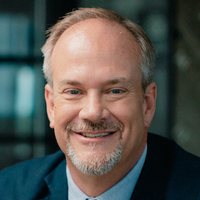
Dr. Christopher Baglow serves as the Director of the Science & Religion Initiative at the McGrath Institute for Church Life at the University of Notre Dame, creating programs, courses, talks and publications that bring the Catholic faith and modern science into dialogue. His work is the culmination of 18 years of faith and science scholarship and educational program creation, as well as a lengthy career in Catholic theological education spanning high-school, undergraduate, graduate and seminary teaching. In his five years as Director, SRI has seen major growth, reaching over 2700 Catholic leaders and educators from diocesan offices and parishes, but above all science and religion teachers from Catholic high schools, supported by three successive grants from the John Templeton Foundation. For this work, he was co-recipient of an Expanded Reason Award in Teaching from the Universidad Francisco de Vitoria (Madrid) and the Vatican Joseph Ratzinger Foundation (Rome).
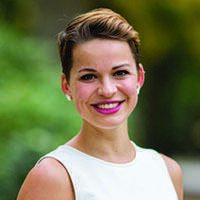
Dr. Sofia Carozza is a postdoctoral researcher at Harvard Medical School. She completed her doctorate in neuroscience in Summer 2023 as a Marshall Scholar at the University of Cambridge. Through her research on child brain development, she explores the causes and mechanisms of resilience after childhood trauma. Sofia is a graduate of the University of Notre Dame, where she studied neuroscience and theology as a Hesburgh-Yusko Scholar and was the valedictorian of the class of 2019.
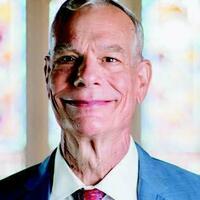
Dr. John C. Cavadini is Professor of Theology at the University of Notre Dame, where he also serves as McGrath-Cavadini Director of the McGrath Institute for Church Life. He teaches, studies and publishes in the area of patristic theology and on its early medieval reception. He has served as a consultant to the USCCB Committee on Doctrine since 2006 and served a five-year term on the International Theological Commission (appointed by Pope Benedict XVI). He received an Honorary Doctorate in Humane Letters from The Catholic University of America in 2022 and is the recipient of the 2022 Faculty Award for outstanding service to the University of Notre Dame. In 2018 he received the Monika K. Hellwig Award from the Association of Catholic Colleges and Universities for Outstanding Contributions to Catholic Intellectual Life.
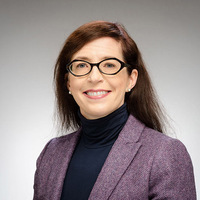
Heather Foucault-Camm, PGCE, M.Sc., M.A., is Project Director at the McGrath Institute for Church LIfe at the University of Notre Dame. She received an M.Sc. in Physical Chemistry from University of Ottawa in Canada and a PSGC in Science Education from University of Leeds in the UK, has completed the program for the National Certificate in Health Care Ethics from the NCBC, and is working towards an M.A. in Theology at the University of Notre Dame. A veteran science teacher and curriculum expert, she has created and implemented a high school course with a two-part focus on the Church’s historic relationship with science and bioethics.
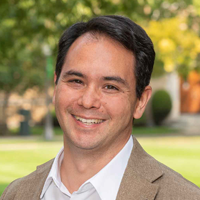
Dr. David B. Go serves as the Viola D. Hank Professor of Aerospace and Mechanical Engineering; Vice President and Associate Provost for Academic Strategy. He graduated from the University of Notre Dame with a B.S. in Mechanical Engineering. Upon graduation, Prof. Go joined General Electric Aviation where he was a design engineer in the Edison Engineering Development Program. While working at G.E., Prof. Go also completed his M.S. in Aerospace Engineering from the University of Cincinnati. Prof. Go completed his Ph.D. in Mechanical Engineering at the Birck Nanotechnology Center at Purdue University. Prof. Go has published widely in the areas of plasma science and engineering, heat transfer and fluid dynamics, and chemical analysis, including one introductory text book, and holds several patents and patent applications, leading to two licensed technologies. His research has been supported by nearly every federal agency, including the NSF, ARO, AFOSR, DARPA, NASA, DOE, and NIH, as well as several industry and foundation partners. Prof. Go's teaching interests are centered around thermal-fluids courses and experiential courses, including design thinking and design projects.
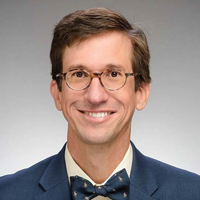
Dr. Santiago Schnell serves as the William K. Warren Foundation Dean of the College of Science at the University of Notre Dame. He also holds a tenured appointment as professor in the Department of Biological Sciences. Previously, Schnell led the University of Michigan Medical School’s Department of Molecular and Integrative Physiology to become one of the top National Institutes of Health-funded physiology department in the nation. In addition to serving as department chair, Schnell was the John A. Jacquez Professor of Physiology and a professor of molecular and integrative physiology as well as computational medicine and bioinformatics. Schnell received his undergraduate degree in biology from Universidad Simón Bolívar in Venezuela and earned his doctorate in mathematical biology from the University of Oxford in the United Kingdom. After completing his doctoral studies, he held two prestigious research positions at Oxford — junior research fellow at the Christ Church college and Wellcome Trust research fellow at the Wolfson Centre for Mathematical Biology.
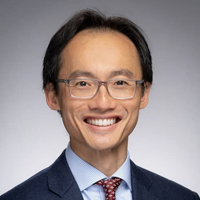
Dr. Nicholas Teh serves as Associate Professor of Philosophy at the University of Notre Dame. His primary research area is the philosophy of physics, especially questions concerning the philosophical and mathematical foundations of gauge symmetry, spacetime theories, and quantum field theory. He is also interested in the philosophy of modeling (at various scales) as well as approaches to scientific representation that are inspired by the Aristotelian-Thomistic tradition. His broader interests include the philosophy of art (especially during the medieval to renaissance transition in Florence) and the foundations of economics and finance. Previously, he held postdoctoral research fellowships at the Department of Applied Mathematics and Theoretical Physics, University of Cambridge and the Quantum Group at the Oxford University Comlab. Before that, he read for a Ph.D. in History and Philosophy of Science at Trinity College, Cambridge.